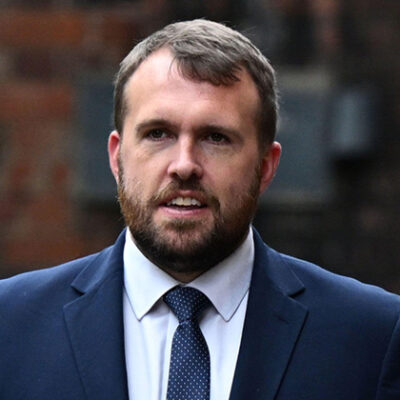Government officials are working on plans to package up “clusters” of schools eligible for government intervention so they can be moved en-masse into large academy trusts.
Jonathan Gullis, the former schools minister, told Schools Week that officials wanted to be more strategic about academy expansion and help large trusts into areas in which they did not have schools.
At present most “rebrokering” of academies or conversion of failing maintained schools is done on a case-by-case basis.
The proposals are supported by the country’s leading trusts, which will be integral in helping ministers deliver their pledge for all schools to be in a “strong” trust by 2030.
The focus will be on schools eligible for government intervention, including those rated ‘requires improvement’ twice in a row.
Government sources say the plans are still being worked on, but will need the support of the new ministerial team at the Department for Education.
‘Cluster takeovers is mature commissioning’
Gullis spoke to Schools Week this week after he was sacked in Rishi Sunak’s reshuffle. He spent 50 days in post.

He said the DfE was keen to broker “deals” with large academy trusts such as the Harris Federation and Ark Schools, and was looking at “actually putting together packages of clusters for multi-academy trusts to take over”.
Lucy Heller, Ark’s chief executive, said her trust had regular discussions with the DfE about growth.
“We don’t have any immediate plans but are definitely open to new partnerships. As ever, our priority will be to grow in a sustainable way that serves communities where we can make the biggest difference.”
It is not unheard of for groups of schools to be rebrokered to a new trust en-masse. This is usually done when another trust fails or is ordered to downsize, but trusts have also taken on multiple schools in the same area in other circumstances.
Outwood Grange Academies Trust recently took on two schools in the north west where it had “no footprint”.

Sir Martyn Oliver, its chief executive, said: “Instead of being capacity takers, I’ve now got two schools that are capacity givers and will be able to develop in a region of their own.”
It was “mature commissioning decision-making” that allowed trusts to build a team in a new region but also “protect the most vulnerable schools”.
The future of the government’s flagship schools bill, which was due to give greater intervention powers, is still up in the air.
Gullis told Schools Week he feared the bill would be “squeezed out” of the Parliamentary timetable.
But “certain elements”, namely the academy reforms, “could probably be carved out” into separate, smaller legislation.
‘Academy trusts need time to show improvement’
The government’s new trigger for intervention covers all schools rated ‘requires improvement’ in two consecutive inspections, even if a school moves trust in between the inspections.
Analysis by FFT Education Datalab earlier this year found there were 1,215 so-called “double RI” schools as of December last year, although all but 155 were already in academy trusts.

This means the policy is unlikely to push many more maintained schools into MATs. But the government still faces potentially rebrokering hundreds of schools.
Cathie Paine, the chief executive of the primary trust Reach2, said clustering would be a “broadly sensible approach – but … the devil is in the detail”.
However she pointed to the “importance of allowing sufficient time for trusts to show progress with a struggling school and not to cause unnecessary further disruption to the school by switching trusts too soon in the improvement cycle”.
Sir Hamid Patel, the chief executive of Star Academies, said clustering would enable “economies of scale”, making clusters a “much better proposition”.
‘Fixation’ on larger academy trusts questioned
But Alice Gregson, from Forum Strategy, warned ministers against a “narrow fixation” on making large trusts larger by moving into areas beyond their schools “and when we have many medium – and smaller – sized trusts with high potential”.

The government expects all trusts to have or be working towards having at least 10 schools by 2030.
As of early 2022, there were 2,539 trusts in England, made up of nearly 10,000 schools, Datalab analysis shows.
More than half were still single-academy trusts or part of a multi-academy trust with fewer than 10 schools.
But trusts are getting bigger: the average size of an MAT increased from five in 2018 to seven this year. Just over a fifth of schools are part of a MAT of 10 schools or more.
However, Gregson said just “parachuting in help from afar won’t necessarily be a sustainable solution”.
Calls for regional performance dashboards
Paul Tarn, the chief executive of the Delta Academies Trust, said while taking on clusters of schools was “infinitely more preferable”, it needed “proper accountability” to work.
He wants a system of new regional school boards to oversee the performance of trusts’ school clusters.

Performance should be judged on a dashboard system, with metrics including academic results plus the state of buildings, quality of central services, executive pay and exclusion rates.
“It can’t be the case anymore that trusts are able to jettison one school in a cluster that they are struggling with, but keep the others because they are easier. They need to come as a cluster – and, if needed, leave as a cluster.”
A DfE spokesperson said it is developing an approach to “ensure the growth of trusts is strategic and joined-up and the movement of schools into strong trusts is well planned and communicated, delivering high standards and sustainable school improvement across an area”.
















Your thoughts